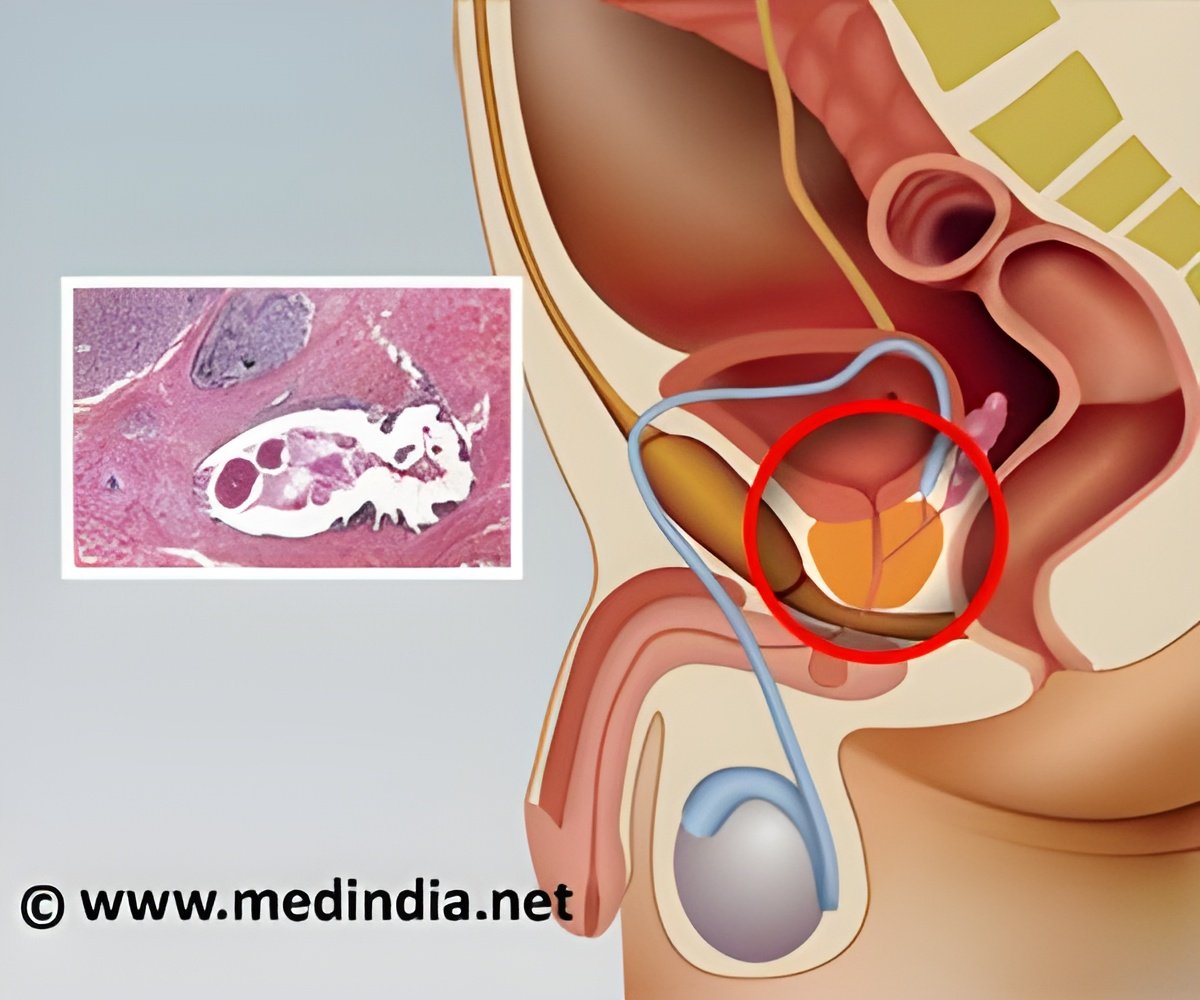
Traditional means of determining risk of prostate cancer -- blood tests for the protein prostate-specific antigen (PSA) and biopsies -- do not always correlate well with the chances of dying from the disease. Decisions on what to do with the results of these tests can be unclear, leaving doctors and patients frustrated and unsure of how to proceed.
Researchers at Weill Cornell Medical College are looking at specific changes within prostate cells, from an initial biopsy, to determine which men have a higher risk of prostate cancer development and need repeat biopsies or other types of monitoring. This study starts to fill in the picture for about 10 percent of prostate biopsies.
Investigators found that 53 percent of men whose prostate biopsies showed expression of ERG protein developed invasive prostate cancer, compared to 35 percent of men whose biopsies were ERG-negative. All of the biopsies were classified as having high-grade prostatic intraepithelial neoplasia (HGPIN), which are lesions that may or may not morph into cancer.
The findings mean that potentially thousands of men a year -- those with ERG-positive HGPIN biopsies -- may benefit from increased surveillance and early treatment of prostate cancer, while those whose HGPIN biopsies come back ERG-negative may be able to avoid unnecessary future biopsies, says the study's senior investigator, Dr. Mark Rubin, the Homer T. Hirst Professor of Oncology in Pathology and professor of pathology and laboratory medicine.
Advertisement
"What this study shows is that not all HGPIN is equal -- that is, clinically significant," Rubin adds. "When confirmed in larger studies, testing for ERG in these precancerous lesions may change clinical practice in how men are evaluated with abnormal biopsies and may lead to earlier cancer detection."
Advertisement
"About 1.3 million men will have a prostate biopsy each year, and this biopsy will be HGPIN-positive in more than 100,000 men. While HGPIN can be a precursor to prostate cancer, it's not really clear how often men with HGPIN will develop prostate cancer, or how quickly," Dr. Barbieri says.
"Because of this uncertainty, urologists aren't entirely clear on how they should follow men with HGPIN." The guidelines used to be that all men with HGPIN should get an immediate repeat biopsy, but now some experts suggest waiting six months, or a year, or not re-biopsy at all.
"Now we have shown that men with HGPIN that expressed ERG were at higher risk for developing prostate cancer. This finding could potentially give urologists a better idea of who needs a repeat biopsy, and who is more likely to be at lower risk," he says. "Since prostate biopsy isn't a totally benign procedure -- a measurable percentage of men develop complications severe enough to require hospitalization -- being able to make a more informed decision about patient management will be valuable."
Cancer increases over time in ERG-positive biopsies
The prostate cancer-specific ERG protein overproduction results from the fusion of two genes, leading to a chimeric gene referred to as TMPRSS2-ERG that is present in over half of the 230,000 prostate cancers diagnosed in the United States each year. The fusion gene was co-discovered by Dr. Rubin in 2005.
Scientists believe approximately 15 percent of HGPIN express ERG. They have been examining the presence of ERG protein in prostate biopsies as a potential marker of future prostate cancer -- hence the development of tissue and blood ERG tests -- but studies have been small and their results unclear.
To calculate the link between ERG and development of prostate cancer, the research team retrospectively examined prostate biopsies collected in a randomized phase III, double-blind, placebo-controlled clinical trial testing the effect of the drug toremifene in preventing prostate cancer. They looked for ERG protein expression in HGPIN-positive biopsies from 461 men enrolled in the clinical trial.
Investigators found ERG expression in about 11 percent of participants' biopsies, and over time, increasing numbers of these patients developed invasive prostate cancer -- about 15 percent within the first year of the three year-trial, 37 percent at year two, and 53 percent at year three.
ERG tests from tissue and urine are already available, Dr. Rubin says, adding, "This study and other ongoing studies are beginning to shed light on the potential utility of these tests.
"We are now in an era of precision medicine -- where looking at cancers at a molecular level will give us crucial information that we can use to decide on the right clinical course for individual patients," Dr. Rubin says. "In that same light, findings in this study point to a potential advance in early assessment and treatment of prostate cancers."
Source-Eurekalert







![Prostate Specific Antigen [PSA] Prostate Specific Antigen [PSA]](https://www.medindia.net/images/common/patientinfo/120_100/prostate-specific-antigen.jpg)





